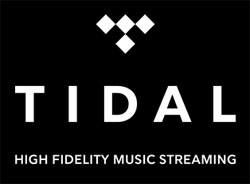Earlier this week we reported on a new piece of software that allows TIDAL tracks to be permanently downloaded to a computer.
The tool is unique, as it doesn’t require people to listen to the entire track in order to copy it, setting it apart from similar download tools.
“This is an actual downloader – you are logging into TIDAL through the tool and you get the direct ‘stream-URLs’ that can then be downloaded,” developer Lordmau5 explained.
The people at TIDAL were obviously not happy with this development and quickly urged their lawyers at Reed Smith LLP to take action, which they did.
In a takedown notice directed at the developer platform GitHub, where the TiDown code was hosted, they state that the open source code is infringing on the rights of their client.
“The code provided by the user can be used to circumvent access controls to copyright protected works,” the DMCA notice reads, asking for its immediate removal.
As a result, people who try to access the GitHub repo, linked on the official TiDown page, now see the following takedown notification.
We contacted the developer, who’s surprised by the language used in the takedown notice. The lawyers claim that the tool infringes “TIDAL source code,” which is obviously not the case.
“The DMCA request says that I would’ve used their source code, which is wrong. So *technically* the DMCA is illegal and I could sue them over that,” Lordmau5 informs TorrentFreak.
“However, since I don’t have or know a lawyer in that area, and it would cost a fortune to pay the cost, I’ll just let it rest for now,” he adds.
Perhaps wisely so, as the intent of the application is directly linked to copyright infringement. This gives TIDAL’s lawyers plenty of reason to take it offline, or even worse.
While TiDown’s swift destruction is a disappointment for the developer, part of the motivation for the tool was to expose the vulnerabilities in TIDAL’s API. That part was definitely achieved.
Also, TiDown is not as dead as it may seem at first sight. Lordmau5 notes that the project has been forked several times already and these repositories (1, 2, 3 etc) are still available on GitHub.
And as we’ve seen in the past, it can be difficult to stop this type of code from being shared online…


 Earlier this week we reported on a new piece of software that allows TIDAL tracks to be permanently downloaded to a computer.
Earlier this week we reported on a new piece of software that allows TIDAL tracks to be permanently downloaded to a computer.




